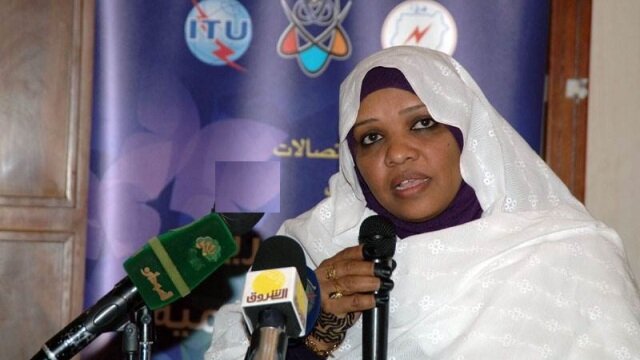IDB Approved Projects Amounting to 100 Million Dollars for A number of Countries Including Sudan.
-Vice President Directs Conducting Scientific Research on Causes of Cancer Disease.
(Haffiya Elyas) Cancer has been one of the major killer diseases for many yeas in Sudan and number of people developing and dying from cancer is predicated to continue to increase steadily despite ongoing efforts to control cancer, services remain fragmented and are not coordinated .Given there is no national cancer registry ,monitoring and evaluating reliable data remains challenging .Most patients that seek treatment present in advanced stages when palliation is the only option .Another challenge is massive influx of cancer patients from neighbouring countries ,such as from south Sudan and Ethiopia.
Khartoum hosted the Meeting to Review Funding Gaps and Mobilize Resources for the Implementation of priority Interventions in National Cancer Control Programs of the OIC-IAEA-IDB –WHO Common Member States from 20-22 March ,2017.
Sudan develop a National Cancer Strategy 2017-2020 that incorporates most major components of comprehensive approach to tackle cancer .Early screening programmes are being implemented for breast ,cervical land oral cancers in particular .
- Vice President Hassabo Mohamed Abdelrahman has directed conducting scientific research and surveys to determine the causes of cancer disease and its complications in coordination with the Ministry of Higher Education and Scientific Research as well as making available more resources to fund these studies.
The Vice President while addressing the held in Corinthia Hotel in Khartoum yesterday saying that Sudan is committed to the international charters and works to realize the millennium development goals, indicating that the country endeavors to enhance primary health services by the year 2020 and indigenize medical treatment.
The Vice President pointed out that the government has provided 50 types of cancer medicines and it extends free medical treatment to kidney, heart and mycetoma patients besides children under five years of age.
He noted that breast cancer is the most spread type of cancer in Sudan, urging early detection and diagnosis of the disease, calling for transferring the outcome of the meeting into concrete policies and legislations in a view to exchange experiences on combating cancer disease.
Accordingly ,the proposal seeks additional financial support for the government of Sudan to enhance the quality of cancer care services delivered .This will also complement the country programme Framework (CPF) between the IAEA and Sudan ,which has a strong focus on enhancing cancer services .The IAEA plans to support Sudan in enhancing the quality of cancer services .
Federal Minister of Health Bahr Idris Abu Garda, on his part, affirmed that cancer disease constitutes a great problem for the countries of the world and that its combating is one of the goals of development, noting that 8.8 million persons died in the world in 2016 of the disease, constituting 16% of the total deaths in the world at that year.
The minister pointed out that 70% of cancer deaths in the world occur in the developing countries, adding that the world had spent 1.1 trillion dollars for controlling the disease, indicating that cancer incidents in Sudan range between 11000-13000 cases annually.
He said Sudan has adopted a package of interventions, including integrating services for early detection of cancer disease in the basic health care as well as providing treatment services in eight centers in the states and radio therapy in three centers.
The efforts also included qualifying a number of oncology specialists and making available the necessary equipment for free treatment, the minister said, adding that health insurance coverage for poor families in Sudan will reach 80% this year.
The minister called for providing more financial support to curb the spread of the disease, lauding the contributions of partners, donors, and the national and international organizations in this regard, which are considered as basic partner for combating cancer in Sudan.
Representative of Jeddah-based Islamic Development Bank (IDB), Dr. Bashir Eltayeb, on his part, said health is given top priority by the bank in its development support to member states, noting that the bank approved projects amounting to 100 million dollars for a number of countries including Sudan.
Director of Radiation and Isotopes Center Khartoum, Prof. Dafallah Abu Idriss, on his part, spoke of long waiting lists for some surgeries, especially brain cancer surgery, affirming that the services are expanded by adding five new centers, one in Khartoum and four in the states.
-
Sudan Participates in the African Economic Forum in MauritiusNext >

